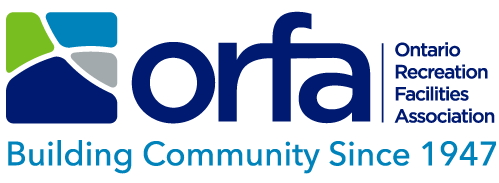- ORFA Home
- Resource Centre
- Technical Corner
- Recreation Waste – Cradle to Grave
Technical Corner
Recreation Waste – Cradle to Grave
January 3, 2023
The recent announcement to curve single use plastic use in hope of reducing landfill waste is long overdue. Government intervention is usually a sign that whatever is becoming out of control with people not making self-directed change will be regulated. Once a regulation is in place, it usually never becomes redundant. Most silently sit in place and are only referenced for extreme breaches or will be increased if there is no change in public attitude or behaviour. Regulations are not a solution, they are a catalyst for awareness. Change or solutions can only come from the people who are being regulated.
As an Association, the ORFA continues to watch the industry attempt to change behaviour. More than 20 plus years ago, we held a regional meeting in the Nepean Sports Complex where staff unveiled their recreation waste management system. It was colourful, very impressive and industry leading. The same waste containers are still in place as I get to visit and instruct at this location annually. However, every can has the same garbage bag in it - suggesting that regardless of what bin is selected the waste is all handled the same. This is not critical. The city invested but users failed to be part of the solution. Any member who has attempted to bring a waste recycling plan into action quickly learns that having cross contamination in any of the bags usually has the entire bag sent to landfill.
NHL Green [more], looks at many different approaches for ice sheet operations to be environmentally friendly. Having had the opportunity a few years ago to listen to the efforts of the Montreal Canadians to control waste at the Bell Centre [more] , I learned that recreation waste can be controlled but it takes leadership and investment to be successful. After each event, building waste was collected, dumped internally, sorted, and sent to the appropriate recycling centre (the Bell Centre has reduced its garbage output by 78% since 2007).
In Ontario, Regulation 347, of the Environmental Protection Act requires all generators of waste to be “registered”. This includes most recreation facilities. Most facility managers fail to realize that they have this obligation. An example of how a regulation does not immediately result in change. Most recreation waste is managed out of sight of our users who are the stakeholders of our efforts to be compliant. Many assume we are being diligent in this regard after they leave. Many would be disappointed by our collective efforts.
An arena mechanical room oil waste is the most predominate example of our responsibility to be environmentally compliant from cradle to grave but there is so much more that we often turn a blind eye to. Aquatic facility backwash waste, ice sheet paint disposal practices and refrigerant management are other examples of our environmental compliance obligations. If a facility does not have proper policies and procedures in place, then it is part of the problem rather than part of the solution.
The recent government effort to control single use plastics through regulation. Single-use Plastics Prohibition Regulations: Overview - Canada.ca will be the next environmental stewardship responsibility to impact our industry and this will require resources that are not readily available to properly manage. Leadership from grocery stores and fast food chains have occurred in advance of strict compliance requirements that arrive later in 2023 Canada plastics ban: How companies are responding | CTV News. Many recreation facility concession operations are already struggling to operate and these changes will only add to this weight of trying to remain open.
I continually remind ORFA members that facility management is information management. Our responsibility as industry leaders is to stay in tune with change and inform senior administrative leadership of these changes and how our operations might best position ourselves to meet change. If the information is tabled or rejected, we have performed our duty. One can consider how we might change our operations with the resources that are in place while continually reminding senior staff of the issue as part of budget discussions or during other internal initiatives that may reflect these changes.
Regulation is often viewed as cumbersome and difficult when in reality, it is government leadership on an issue that is not being self-governed. Waste management is our problem today, and if not handled appropriately, it will be a much larger problem for future generations. You decide if you are part of the problem or part of the solution.
Comments and/or Questions may be directed to Terry Piche, CRFP, CIT and Director, Training and Research Development, Ontario Recreation Facilities Association
|
Note: The publisher, (Author(s)/General Editor(s)/Licensor(s)) and every person involved in the creation of this communication shall not be liable for any loss, injury, claim, liability or damage of any kind resulting from the use of or reliance on any information or material contained in this communication. While every effort has been made to ensure the accuracy of the contents of this communication, it is intended for information purposes only. When creating this communication, none of the publisher, the (Author(s)/General Editor(s)/Licensor(s)) or contributors were engaged in rendering legal or other professional advice. This communication should not be considered or relied upon as if it were such advice. If legal advice or expert assistance is required, the services of a competent professional should be sought and retained. The publisher and every person involved in the creation of this communication disclaim all liability in respect of the results of the any actions taken in reliance upon information contained in this communication and for any errors or omissions in the works. They expressly disclaim liability to any user of the work. |
